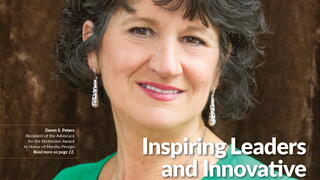
Report on ethics violations and program highlights for fiscal year 2024.

Inclusivity isn’t just a buzzword—it’s a crucial component of a thriving, democratic society.
Warren Hutmacher joins ICMA's Voices in Local Government podcast for a recurring Q/A theme on local gov careers, hiring, and recruiting.

Are you encountering various talent challenges and aiming to enhance the development of your successors? Here are some recommended solutions and modern tools.

Fostering optimal citizen engagement isn’t a one-and-done task; it requires ongoing efforts to see what works for your community and to adjust course accordingly.
LGRC PALM DESERT JUNE 2024 | POWERPOINT PRESENTATION


